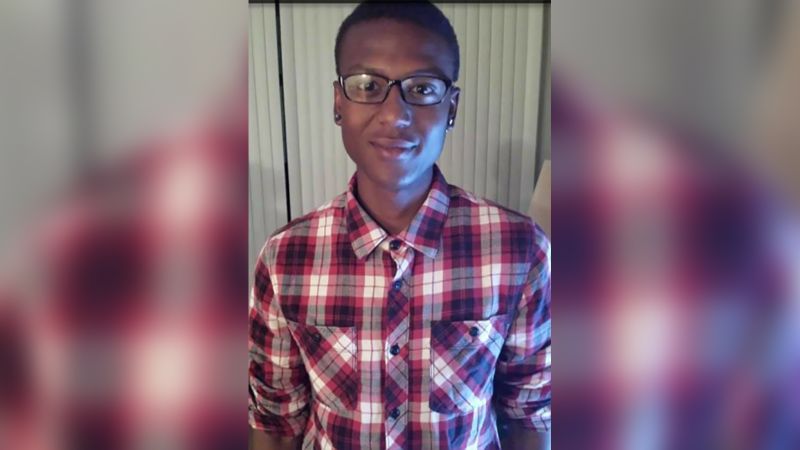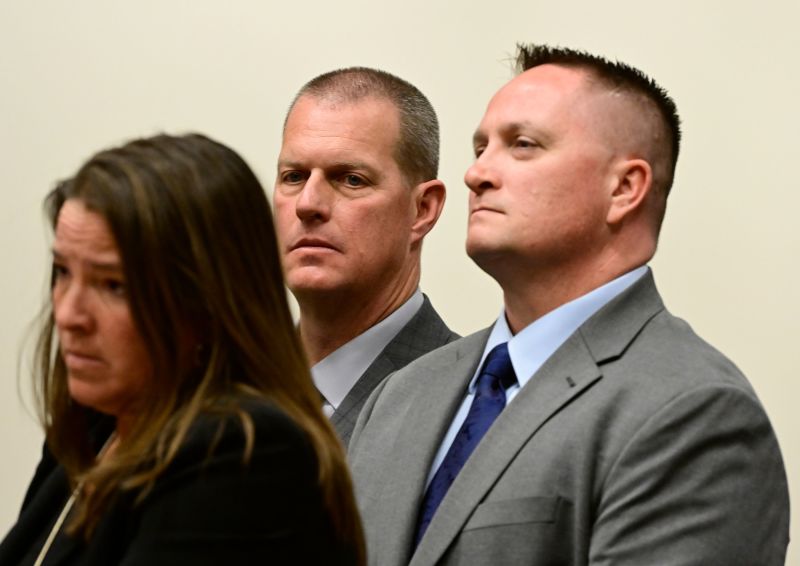
The Elijah McClain trial challenges the seldom-charged paramedics in cases of patient fatalities

A guilty verdict against Colorado paramedics for Elijah McClain's death could set a precedent nationwide, challenging the limited liability typically granted to medics The case highlights the role of ketamine and the high burden of proof faced by prosecutors
The 2019 death of Elijah McClain could have a far-reaching impact, experts say, as two Colorado paramedics face a rare criminal case for their involvement. The prosecution wrapped up its case on Wednesday, with the paramedics pleading not guilty to charges of manslaughter and criminally negligent homicide.
According to experts who spoke with CNN, the trial of two emergency medical technicians for the death of a person they treated while in police custody is unprecedented. Paramedics are usually government agents with legal protections that shield them from liability, even when following proper medical protocols that result in injury or death.
While police officers are often protected by laws permitting their use of force, it is even more unusual for emergency medical technicians to face any sort of professional, civil, or criminal repercussions for their actions while on the job.
Cooper and Cichuniec were charged by a grand jury in 2021, along with three Aurora police officers. Nathan Woodyard was acquitted by a Colorado jury in November of all charges. Randy Roedema and Jason Rosenblatt were jointly tried starting in September. Roedema was convicted of criminally negligent homicide and third-degree assault and will be sentenced in January. Rosenblatt was cleared of all charges.
The charges against the five first responders relate to the arrest of McClain, 23, on August 24, 2019, when officers responded to a call about a "suspicious person" wearing a ski mask, according to the indictment. The officers confronted McClain, a massage therapist, musician, and animal lover, wrestled him to the ground, and put him in a carotid hold as he was walking home from a convenience store carrying a plastic bag with iced tea.
Courtesy McClain family attorney Mari Newman
Five Colorado first responders who were charged in connection with the 2019 death of Elijah McClain have pleaded not guilty to all charges. The case against Cooper and Cichuniec is notable due to their diagnosis of McClain with "excited delirium," a term that is controversial and describes violent agitation. They also administered the powerful sedative ketamine to McClain before he suffered a heart attack while being transported to the hospital, ultimately leading to his death three days later. Candace McCoy, an attorney and criminal justice professor at John Jay College of Criminal Justice, provided this information.
Paramedics estimated McClain's weight to be 200 pounds and administered a dose of ketamine to match, according to the indictment. After being criminally charged, Cooper and Cichuniec were suspended from their roles in September 2021. The Colorado Department of Public Health and Environment will decide whether to revoke their certifications based on the trial's outcome, a spokesperson said.
The ketamine factor
The defense attorneys of the three Aurora officers argued in court that McClain's death was caused by the paramedics administering a dose of ketamine that was too large for his body size. The controversial use of ketamine by emergency responders to sedate individuals against their will has sparked investigations in various states.
The indictment states that a 500 mg dose of Ketamine was given to McClain, despite the recommended dose being closer to 325 mg. When placed on the gurney, McClain appeared unconscious, limp, and with visible vomit coming from his nose and mouth, with Officer Roedema noting that he heard McClain snoring, which could indicate a ketamine overdose.
The initial autopsy report stated that the cause of death was undetermined. However, a revised report released to the public in 2022 identified "complications of ketamine administration following forcible restraint" as the cause of death. The manner of death remains undetermined. Dr. Stephen Cina, the pathologist who authored the autopsy report, stated that he did not find evidence that injuries from the police contributed to McClain's death, and that McClain "would most likely be alive if not for the administration of ketamine."
Paramedics Peter Cichuniec and Jeremy Cooper, pictured in the center and right, respectively, listen to attorney Shana Beggan at an arraignment in the Adams County district court at the Adams County Justice Center on January 20, 2023.
Dr. Roger Mitchell, a forensic pathologist, testified on Wednesday as the last witness called by prosecutors. After reviewing footage from the incident, he stated that McClain showed signs of hypoxia, but emphasized that there was no evidence of excited delirium. Mitchell recommended that McClain needed oxygen, fluids, and a physical examination before being injected with ketamine.
Mitchell testified that if that had been done, he wouldn't believe that ketamine would have been administered.
Hodge stated that emergency medical technicians and police officers arrive at the scene with different purposes, but their roles can intersect immediately.
Hodge said that the dynamics of leading on the missions of stabilizing the patient and addressing a criminal threat can be challenging, especially when they are sometimes at odds. "There are not too many cases like this where paramedics and police are caught up in the dynamics of trying to contain the scene," he added. McCoy, an expert on the rule of law and police practices, suggested that one potential outcome of the trial could be that paramedics should be cautious about taking the police's word at face value.
A conviction in the trial could make paramedics more hesitant to respond to scenes where law enforcement is present, even if their sole purpose is to provide medical assistance, explained James Hodge, who is the director of the Center for Public Health Law and Policy at Arizona State University.
"We don't want to give permission for paramedics or police to engage in inappropriate behavior towards individuals seeking medical care," Hodge stated. "However, if paramedics are potentially held liable for following police directives in real time at a scene, it could have a very serious chilling effect."
A high burden of proof on prosecutors
When a law enforcement officer or paramedic engages in criminal behavior, their statutory immunities are no longer in effect, explained Hodge. This creates an opportunity for individuals to file lawsuits claiming that their constitutional rights were violated. However, Hodge noted that it is extremely difficult for prosecutors to prove criminal activity, intent, or gross negligence on the part of paramedics.
The officers implicated in the death of Elijah McClain were not charged for 2 years. Here is a timeline detailing the road to trial for the case.
"Typically, paramedics are not implicated in cases related to their standard duties unless there is evidence of serious negligence, intentional misconduct, or criminal activity," Hodge commented. "The specifics of the McClain case remain uncertain, but if such factors are present, the paramedics could potentially be held liable."
Paramedics are often accused of negligent duty or medical malpractice, but many claims are dismissed due to the difficulty in proving that a patient's injury was caused by negligence or criminal activity, according to Hodge.
One example of this is the case of William Marshall, who died while in custody at a Michigan jail in 2017. In 2018, two paramedics and an officer were charged with manslaughter in connection to his death, as he was in custody for drug possession and began experiencing convulsions and muscle spasms.
When paramedics arrived, Marshall informed them he was having a seizure and asked for help, but prosecutors stated that neither paramedic provided medical attention and he was returned to his cell. He died a few hours later from cocaine toxicity, according to prosecutors. In 2019, the officer and the two paramedics had their charges dropped after a judge determined that the prosecution could not prove their actions led to Marshall's death.
According to McCoy, prosecutors are hesitant to bring charges against government agents protected by sovereign immunity and have significant discretion in making judgment calls in the field. McCoy added that prosecutors face a significant challenge in proving to the jurors beyond a reasonable doubt that the paramedics' negligence led to Marshall's death.
McCoy explained that proving negligence in the case of the EMTs would require showing a significant deviation from the normal medical standard, which can be difficult. She noted that while jurors may not have a positive bias towards EMTs, their medical training makes it challenging to assess the situation. She also mentioned that the defense would aim to raise doubts about the negligence involved in the homicide. McCoy added that the defense only needs to win over one or two sympathetic jurors to support the EMTs.
CNNs Andi Babineau contributed to this report.








